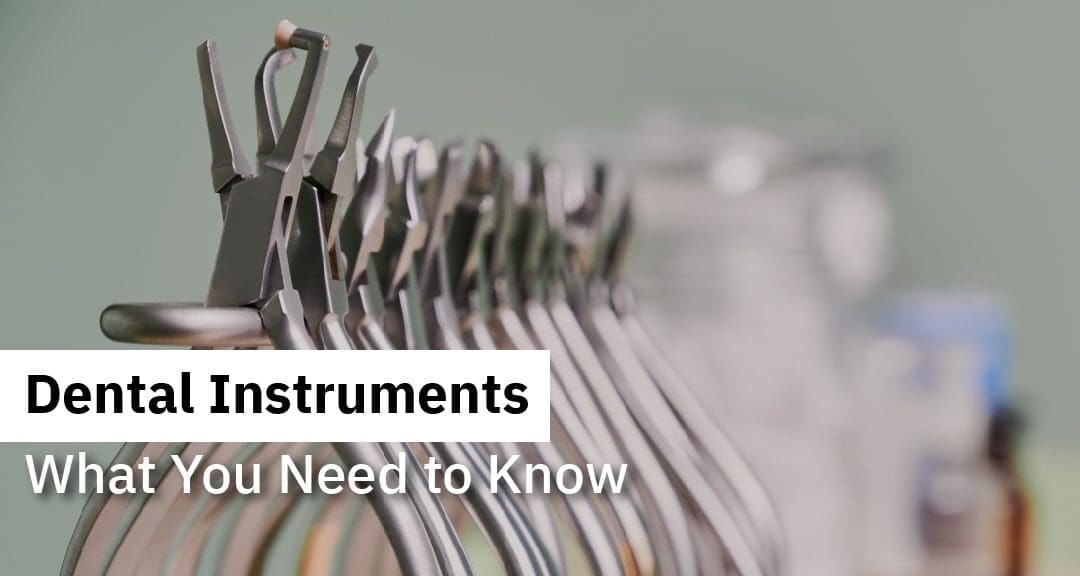
Having suitable dental instruments is essential to providing quality patient care as a dentist. From scaling and polishing tools to surgical extraction kits, numerous options on the market today can help you carry out your practice with comfort, accuracy, and efficiency. Knowing which instruments best suit your procedures, preferences, and budget are key.
As a dentist, you know that the cost of dental instruments can add up quickly. That’s why taking proper care of them is crucial, so they last longer and save you money in the long run. With regular maintenance, your dental instruments can provide years of service.
The most important part of instrument maintenance is cleaning and disinfection. Before you start working with any patient, you should always clean and disinfect your instruments to prevent cross-contamination. First, use an ultrasonic cleaner or an automated washer to remove debris from the instruments. Then, immerse them in an approved chemical disinfectant solution for the recommended length of time on the label. Once complete, rinse off the instruments with cold running water and dry them thoroughly with a clean cloth before storing them away in a cabinet or drawers.
Sharpening dental instruments is also important for longevity, as dull tools are more likely to cause accidental injuries or tissue damage than sharp ones. It would be best if you only sharpened dental instruments made from stainless steel or other metal alloys, as non-metallic materials may become warped by the process. When sharpening your tools, make sure to use a sharpening stone specifically designed for medical use; never use glass paper or other abrasive materials that could damage your instrument’s cutting edge beyond repair. After each sharpening session, lubricate all moving parts with mineral oil to help prevent rusting and corrosion over time.
Once you are done using your dental instruments, they must be stored to preserve their performance levels over time. Store all tools separately from one another in cabinets or drawers lined with a soft cloth or foam material, so they do not rub against each other and become damaged during transit or storage. Ensure all cabinets and drawers are locked when not in use; this will keep curious fingers out of harm’s way! Additionally, ensure adequate ventilation inside cabinets and drawers so moisture does not build up and damage delicate parts of your instruments over time.
Proper sterilization of dental instruments is essential for any successful dental practice. Effective sterilization not only protects patients from infection but also helps to ensure the longevity of your equipment and maintain your reputation as a trustworthy dental care provider.
Infection control is one of the most important aspects of dentistry, and proper sterilization is an integral part of that process. Without effective sterilization, bacteria can spread quickly between patients or even remain on instruments after use; this can lead to severe infections and other health complications, exposing you to legal liability. Furthermore, improperly cleaned instruments may rust or corrode over time, leading to costly repairs or replacements.
It’s essential to follow specific guidelines when cleaning and sanitizing dental instruments. The first step is to rinse off any debris with water before placing them in an ultrasonic cleaner for 15-20 minutes. Afterward, you should immerse them in a solution of enzymatic detergent for 10 minutes before rinsing them again in warm water with a non-chlorine disinfectant. Finally, place the instruments in an autoclave machine for 25-30 minutes at 135°C (275°F). Following these steps ensures that all traces of bacteria are eliminated from your tools and ensures they are safe for patients.
Dentists must consider the importance of only using authorized dental instruments. If you have questions about the safety of these instruments or if you’re unsure which ones are approved, read on to learn more.
Dentists must take every precaution necessary regarding patient safety and well-being. Using authorized dental instruments is paramount in protecting patients from potential harm. In addition, dentists should be aware that it is illegal to use instruments that are not FDA-approved or CE-marked, as these devices have not been tested for safety and reliability. Furthermore, unauthorized instruments may be manufactured with dangerous components that could become loose during a procedure, leading to serious injury or even death in extreme cases.
Dentists must be trained to ensure patient safety and avoid legal issues using all authorized dental instruments. Although some states may require additional training or certification courses before using certain tools, most recognize basic certifications issued by the American Dental Association (ADA). The ADA also offers a variety of continuing education courses designed specifically for dentists who want to stay up-to-date on the latest industry developments and best practices.
Safety isn’t the only reason dentists need to use only authorized dental instruments; buying them from an authorized dealer can also bring peace of mind regarding repairs and maintenance. Authorized dealers typically offer warranties on their products, so if something goes wrong with an instrument purchased from them, they can assist with repairs or replacements quickly and easily; this can be especially helpful if you have a busy practice where time is at a premium! Additionally, many dealers offer discounts on bulk orders or special discounts for members of professional organizations such as the ADA.
The first step in choosing the right dental instrument is researching different brands and models. It would help if you read reviews from trusted sources, such as dental magazines or online forums, to get an idea of what other dentists think about various models. Additionally, talk to colleagues and industry experts who can provide valuable insight into which brands and models they recommend; this will give you a better understanding of what’s available on the market so that you can make an informed decision.
Once you have identified a few brands and models that meet your needs, you must know your budget. Dental instruments can be expensive, so it’s essential to set a realistic budget before making purchases. When setting your budget, you should also factor in long-term costs, such as repairs and maintenance, since these can add up over time. Once you have established a budget, it will be easier to narrow down your options so that you can find the best fit for your practice.
Finally, it’s always best to check out reviews and testimonials from existing customers before making purchase decisions. Looking at customer ratings and reading through their comments will give you a better understanding of how well specific instruments perform in real-world scenarios; this will give you peace of mind knowing that you are investing in quality products that will meet your needs over the long term.
Dental Assets has a wide selection of top-quality dental instruments that meet your needs. So, what are you waiting for? Check out our dental supplies today and take your practice to the next level!

17821 E 17th St
Ste 180
Tustin, CA 92780
*Opt-in / Opt-out
**Customers provide their phone number and consent to receive messages via a form on our website